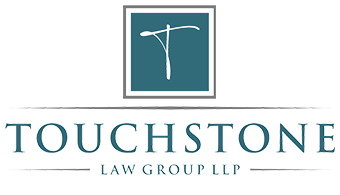Business Vehicles
You have just found your perfect business. Now what? Many entrepreneurs know how to identify business opportunities and how to develop a plan to grasp those opportunities. But many entrepreneurs spend little, if any, time considering the appropriate business vehicle to operate their new business from. Often time’s, individuals just start operating their business without deliberately selecting one of the many alternative forms of business organization. A business structure could be as simple as a proprietor or as complex as a web of related companies. Common vehicles include, sole proprietorships, corporations (both provincial and federal), partnerships, joint ventures and societies. This article will focus on the 2 most common vehicles – proprietorships and corporations.
A proprietorship is the most basic business vehicle – it is also the default business vehicle for the entrepreneur who does not take any further steps to set up an organized business. A proprietorship exists whenever an individual starts to carry on business on his or her own account without taking the steps necessary to adopt some other form of organization. There is little or no set up cost, reduced accounting costs and allows an individual the ability to deduct business losses from other personal income. However, the proprietorship does not offer any liability protection to the business owner. The law does not distinguish between the individual and the business and all of the business assets and liabilities are considered the individual’s assets and liabilities. Additionally, this structure may not be the most tax efficient depending on the individual’s financial circumstances. The key legal requirements of a proprietor are registration of the name (if required) and meeting the licensing requirements in accordance with the local laws.
Many business owners consider incorporating their business. A corporation, unlike a proprietorship, requires specific actions to come into legal existence, and is created by fulfilling the formal requirements of either the provincial or federal statute. Incorporation creates a separate, distinct legal entity and can sue or be sued in its own name, enter into contracts as a natural person can and is entitled to hold property in its own name. A corporation has a number of advantages including limited liability of the shareholders and the ability to easily transfer ownership or part ownership of the company. A corporation can also have several tax advantages, including the small business deduction, preferential income tax treatment and more flexibility in deferring taxes. The key legal requirements for a corporation include filing incorporation documents with the applicable authority and filing annual maintenance documentation thereafter.
In British Columbia, a company may be formed under the federal Canada Business Corporations Act or under the provincial British Columbia Business Corporations Act. There may be several considerations in deciding whether to incorporate federally or provincially. Federal incorporation is often sought where the company will be conducting business across several provinces within Canada as it allows for easy registration and name priority in each province. On the other hand, provincial registration would be preferable where the business does not have enough Canadian resident directors to meet the requirements of the federal legislation which requires that 25% of directors be Canadian residents. Please also note that not all provinces have this exception; other provinces also have certain Canadian residency requirements for the directors of the company.
This information is general in nature only. You should consult a lawyer before acting on any of this information. This information should not be considered as legal advice. To learn more about your legal needs, please contact our office at (250)448-2637
Una Gabie: una@touchstonelawgroup.com
Jennette Vopicka: jennette@touchstonelawgroup.com
Danielle (Dani) Brito: danielle@touchstonelawgroup.com





